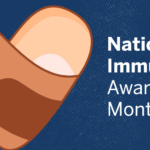President’s Proposed FY20 Budget Will Harm the Nation’s Public Health
Washington, D.C., March 11, 2019 – Statement from John Auerbach, president and CEO, Trust for America’s Health (TFAH).
Auerbach on the President’s Budget Proposal:
“The President’s proposed budget – which includes a 12 percent cut to the Department of Health and Human Services (HHS) budget and an approximate 10 percent cut to the CDC – would be harmful to the nation’s public health and safety. States and communities are grappling with increasing healthcare costs, rises in premature deaths due to chronic disease, substance misuse and suicide, and an increased threat of weather-related emergencies. These realities have created unprecedented demands on our already under-resourced public health infrastructure. Now is the time to strategically increase investments in public health programs and infrastructure, not cut them.”
Auerbach on the consequences of spending caps:
“This proposed budget shows the potential consequences if Congress fails to raise spending caps this year. Health agencies and programs are a continuum. If we decrease investments in prevention and detection of diseases, we can expect higher costs for treatment and response. We urge Congress to reject the proposed budget and work toward a spending package that invests in America’s health.”
Auerbach on diverted resources:
“We are also deeply concerned by the recent report that HHS has diverted an additional $385 million from other programs to increase shelter capacity for unaccompanied migrant children. These programs can’t afford any further diversions. The $14 million being taken from the Centers for Disease Control and Prevention (CDC), for example, is more than the agency’s budget for activities around climate change, unintentional injuries, or healthcare associated infections.”
TFAH urges Congress and the Administration to work to raise the budget caps and enact appropriations bills that reflect the health needs of our population. Our specific concerns about the proposed budget include:
An approximate 10 percent reduction to CDC’s overall program budget. The budget request proposes about $750 million in spending cuts to CDC’s program level, compared with FY19.
Proposed CDC program cuts include:
- Cuts to programs to prevent chronic conditions down by approximately 20 percent – including programs to address obesity, diabetes, cancer, heart disease and stroke. These diseases are the leading causes of death and healthcare costs in the U.S.; decreasing our investment in their prevention would be short-sighted.
- Cuts to programs to protect health from environmental threats such as lead poisoning and asthma made worse by air quality – down approximately 25 percent.
- Cuts to programs to prevent birth defects down by approximately 28 percent.
- Inadequate funding to prevent substance misuse and suicide – Deaths from alcohol, drugs and suicide are at an all-time high,1 yet the budget proposes cuts or level funding for many substance misuse and suicide prevention activities at the Substance Abuse and Mental Health Services Administration and CDC.
The creation of a comprehensive HIV strategy.
Trust for America’s Health applauds the bold goal to end the U.S. HIV epidemic by 2030, but an increased investment in the domestic response to HIV should not come at the expense of efforts to combat other infectious diseases, chronic diseases or environmental threats. At the same time, administrative and legal changes to the ACA and Medicaid are likely to reduce HIV patient access to care.
# # #
Trust for America’s Health is a nonprofit, nonpartisan organization that promotes optimal health for every person and community and makes the prevention of illness and injury a national priority.
1. Trust for America’s Health and Well Being Trust. Pain in the Nation Update: While Deaths from Alcohol, Drugs, and Suicide Slowed Slightly in 2017, Rates Are Still at Historic Highs, March 5, 2019. https://www.tfah.org/report-details/pain-in-the-nation-update-while-deaths-from-alcohol-drugs-and-suicide-slowed-slightly-in-2017-rates-are-still-at-historic-highs/
